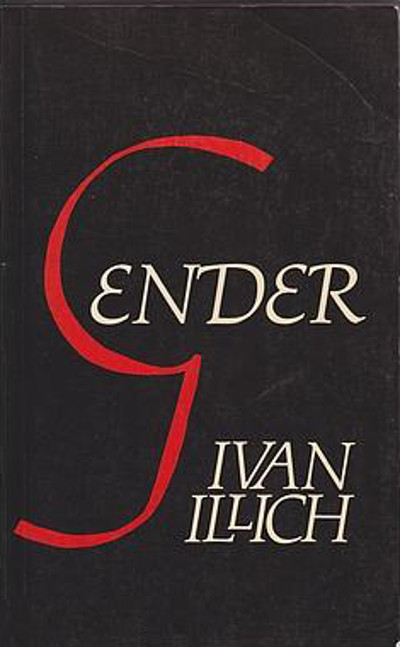Hillel Schwartz: The Culture of the Copy: Striking Likenesses, Unreasonable Facsimiles, 2nd ed. (1996/2013)
Filed under book | Tags: · animal, appropriation, art, children, computing, copy, death, fashion, film, gender, genetics, history, imitation, japan, language, machine, memory, music, photography, piracy, property, reenactment, reproduction, sculpture, simulation, slavery, statistics, surgery, technology, theatre, time, war

The Culture of the Copy is an unprecedented attempt to make sense of the Western fascination with replicas, duplicates, and twins. In a work that is breathtaking in its synthetic and critical achievements, Hillel Schwartz charts the repercussions of our entanglement with copies of all kinds, whose presence alternately sustains and overwhelms us. Through intriguing, and at times humorous, historical analysis and case studies in contemporary culture, Schwartz investigates a stunning array of simulacra—counterfeits, decoys, mannequins, and portraits; ditto marks, genetic cloning, war games, and camouflage; instant replays, digital imaging, parrots, and photocopies; wax museums, apes, and art forgeries, not to mention the very notion of the Real McCoy. Working through a range of theories on biological, mechanical, and electronic reproduction, Schwartz questions the modern esteem for authenticity and uniqueness. The Culture of the Copy shows how the ethical dilemmas central to so many fields of endeavor have become inseparable from our pursuit of copies—of the natural world, of our own creations, indeed of our very selves.
This updated edition takes notice of recent shifts in thought with regard to such issues as biological cloning, conjoined twins, copyright, digital reproduction, and multiple personality disorder. At once abbreviated and refined, it will be of interest to anyone concerned with proglems of authenticity, identity, and originality.
First published in 1996
Publisher Zone Books, New York, 2013
ISBN 1935408453, 9781935408451
480 pages
Review (Terence Hawkes, London Review of Books, 1997)
Review (Francis Kane, The New York Times, 1997)
Review (Todd Gitlin, Los Angeles Times, 1997)
Download (removed on 2014-3-20 upon request of the publisher)
Comment (1)Libre Graphics magazine 2(2): Gendering F/LOSS (2014)
Filed under magazine | Tags: · floss, free culture, free software, gender, graphic design, libre graphics, software

The current issue of Libre Graphics engages with discussions around representation and gendered work in Free/Libre Open Source Software and Free Culture.
Why Gendering F/LOSS? In the world of F/LOSS, and in the larger world of technology, debate rages over the under-representation of women and the frat house attitude occasionally adopted by developers. The conventional family lives of female tech executives are held up as positive examples of progress in the battle for gender equity. Conversely, pop-cultural representations of male developers are evolving, from socially awkward, pocket-protectored nerds to cosmopolitan geek chic. Both images mask the diversity of styles and gender presentations found in the world of F/LOSS and the larger tech ecology. Those images also mask important discussions about bigger issues: is it okay to construct such a strict dichotomy between “man” and “woman” as concepts; how much is our work still divided along traditional gender lines; is it actually enough to get more women involved in F/LOSS generally, or do we need to push for specific kinds of involvement; do we stop at women, or do we push for a more inclusive understanding of representation?
This issue looks at some of the thornier aspects of gender in F/LOSS art and design. In discussing gendered work, the push for greater and greater inclusion in our communities, and representations of gender in our artistic practices, among others, we hope to add and amplify voices in the discussion.
Edited by Ana Isabel Carvalho, ginger coons and Ricardo Lafuente
Publisher ginger coons, January 2014
Creative Commons Attribution-Share Alike license
ISSN 1925-1416
56 pages
PDF (31 MB, low-res version for screen)
PDF (360 MB, high-res version for print)
Ivan Illich: Gender (1982)
Filed under book | Tags: · commons, economics, economy, gender, labour, marxism, medicine, men, production, rent, sex, sexuality, women, work

“The break with the past, which has been described by others as the transition to a capitalist mode of production, I describe here as the transition from the aegis of gender to the regime of sex.” Ivan Illich insists that we survey attitudes to male and female in both industrial society and its antecedents in order to recover a lost ‘art of living’. He argues that only a truly radical scrutiny of scarcity, with special attention in this study to the sexes and society, past and present, can prevent an intensification of this grim predicament.
Publisher Marion Boyars, London, 1982
ISBN 9780714520902
192 pages
Reviews: Arlie Russell Hochschild (New York Times, 1983), Ninna Nyberg-Sørensen (Acta Sociologica, 1987).
EPUB (updated on 2019-10-1)
PDF (30 MB, added on 2019-10-1)

